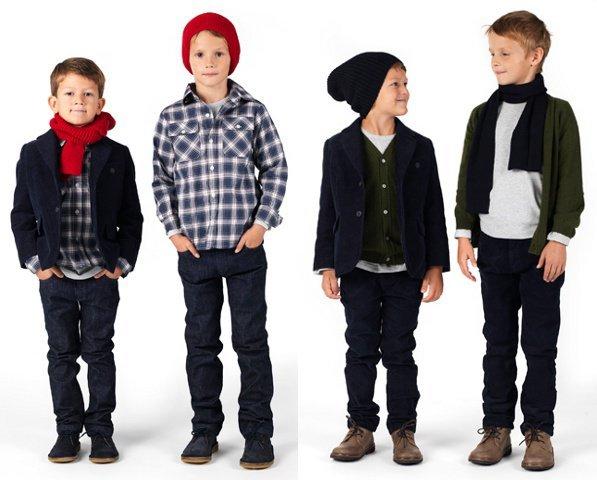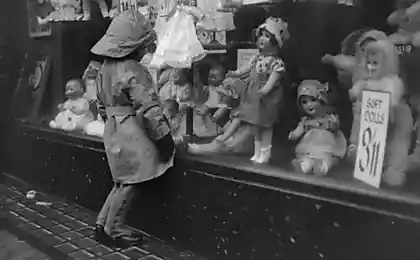536
Who is your child the leader, the star, the observer
Fifty nine million three hundred sixty seven thousand six hundred twenty
Who's who in "the sandbox"
You know who your child is? The leader, the star, the observer... And suddenly he is among the "rejected"?! This article describes how to help the child to occupy a worthy place in your children's team.
ACTORS
The highest group is "leaders". Usually, there are two of them: one for boys, another (rather different) in girls. "Leader" is not always love, but he usually obeyed.
True love are "stars". They're not trying to compete with the "leader" and are with him and with all in good relations.
The vast majority of the team is "accepted", middling. Such children are afraid to Express individuality and value the opinion of a "leader".
In any group there are always one or two "observer". They are very advanced and picky in choosing friends. The other children treat them without aggression and, if they are willing to play along, accept them.
Much harder to have to "white ravens". In this category relate to gifted children and those whose interests are unusual. Ridiculed, but bullying is not reached.
Persecution is the fate of "rejected". They reach out to everyone, but no one wants to have anything to do.

FROM 3 TO 6 YEARS: A PARTY OF TELETUBBIES
A small "leader" does not allow anyone to relax. At home, he forces her to sing a song, and in the kindergarten determines who what to play. In case of rebellion "leader" becomes aggressive, but he knows how to forgive and reward. Parents of "leader" we need to prepare him for that with time he could be displaced from its pedestal. It is important to teach the child to respect the interests of others.
"Stars" are children who have the most interesting toys and not greedy. It is necessary that such a child is not allowed consumer attitude. Explain to him that the other children before you take his toy, must ask permission. It is important that the kid wasn't trying to "buy" the friendship and was not afraid to reject someone. Teach a child to value their individuality. But examples of the type: "what would happen if everyone began jumping out of the window, would you jump?" for him an empty sound.
"Observers" are the cool kids who prefer to communicate with adults. They bore the General game, so you should not get "observers" to participate in them. It is better to look, to whom from children the observer experiencing the greatest interest, and help them to make friends.
"Outsiders" are those who are far from mass-children's fashion – for example, indifferent to the Teletubbies. The child may be his passion, but it only gives a reason for ridicule: what is stamp collecting compared to labels from gum! But if the baby will be a few of the labels notorious for sharing, it will quickly become your.
"Rejected" are usually crybabies, sneak, greedy and bullies. If your child avoid other children, explain to your child that when he starts to behave differently, the peers themselves will be pulled to him.

7 TO 10 YEARS: THE INTELLECTUALS AT THE HELM
In this age of great importance for children is learning, so the "leader" becomes the smartest student. He needs to learn, but not being good. The child is the awareness of its role and has a responsibility for the other children. They may seem to him boring, and then the child will experience loneliness. In this case, it is necessary to expand a circle of its dialogue.
"Star" is considered to be a good friend – one who will always give to write and share a spare pen. Sometimes "stars" in order to maintain the popularity of trying to please everyone: for example, to suggest the lessons (at the expense of his own reputation and achievement). Explain to your child that he risks to gain fame of a weak-willed person.
And "adopted" children in this age there is a desire to stand out from the crowd. To help the child to find its niche in the class, show him his irreplaceable singularity.
"Observers" are children, having friends outside of school. They are happy to participate in the General shenanigans, but a close relationship with classmates avoided. You need to convince "observer" of the need to maintain a friendly attitude on the part of children.
"Outsiders" consider to be standouts, interested only in studies and too obedient children.
"Rejected" are children who are considered "stupid". Objectively, such a child may have normal intelligence, but do not have Hobbies and slowly think. The same role is played by the "Pets" of teachers. To get rid of loneliness, "rejected", you should try to make friends with the "stars" – the most tolerant children in the class.

FROM 11 TO 14: HEART DOES NOT WANT PEACE
In early adolescence the content of roles is changing. The "leader" is one who is popular among the opposite sex and able to defend the interests of the classmates in disputes with teachers. To gain popularity among peers "leader" may be too cocky with adults. You should explain to him that in a dispute it is much wiser to substantiate their claims.
"Stars" become the most attractive children, which is in love with most of the class. They are the "star" disease and can be very cruel with their fans. If the symptoms of this disease appeared in your "asterisk", ask her to imagine what she would feel if her ardent love was not reciprocated.
"Accepted" are children whose parents do not promptly respond to changes in youth fashion. No scooter or rollers can be a barrier to communication with their peers. Of course, it's not the things themselves, and the possibility of participating on par with others in the common amusements.
"Observers" are starting to look down on classmates, including their young. They may have older friends, due to which their authority in the classroom increases. The observer is not trying to compete with the "leader", even though he listens to his opinion. The parents of this child can be quiet – it is a true love and respect.
"Outsiders" may be unfashionable dressed girl or boy. For appearing in this age of enthusiasm for contemporary music into this category fall those who can not distinguish between any "Simons" from "Lenusik". Therefore, even if you are irritated by the hysteria around popular bands, allow the child to be in the loop.
"Rejected" represent a risk group: they have completely lost touch with classmates and find the company of children with similar problems. To stand out, they may start skipping school, Smoking, and even something worse. In the class of "rejected" are unlikely to be able to make friends, and to help them find an alternative company, for example, in the sports section. Thanks to new Hobbies and friendships, the children will become more self-confident. In class, their status may rise to the level of "observers".
In General, if you are concerned about your child's role in the team, remember, it is never too late to try to change something. And sometimes it is enough just to wait. And perhaps your little dictator will turn into a "star" company, a "white crow" will become a beautiful Swan.
Maria nos, psychologist
Source: vk.com/club71531640?w=wall-71531640_9006%2Fall
Who's who in "the sandbox"
You know who your child is? The leader, the star, the observer... And suddenly he is among the "rejected"?! This article describes how to help the child to occupy a worthy place in your children's team.
ACTORS
The highest group is "leaders". Usually, there are two of them: one for boys, another (rather different) in girls. "Leader" is not always love, but he usually obeyed.
True love are "stars". They're not trying to compete with the "leader" and are with him and with all in good relations.
The vast majority of the team is "accepted", middling. Such children are afraid to Express individuality and value the opinion of a "leader".
In any group there are always one or two "observer". They are very advanced and picky in choosing friends. The other children treat them without aggression and, if they are willing to play along, accept them.
Much harder to have to "white ravens". In this category relate to gifted children and those whose interests are unusual. Ridiculed, but bullying is not reached.
Persecution is the fate of "rejected". They reach out to everyone, but no one wants to have anything to do.

FROM 3 TO 6 YEARS: A PARTY OF TELETUBBIES
A small "leader" does not allow anyone to relax. At home, he forces her to sing a song, and in the kindergarten determines who what to play. In case of rebellion "leader" becomes aggressive, but he knows how to forgive and reward. Parents of "leader" we need to prepare him for that with time he could be displaced from its pedestal. It is important to teach the child to respect the interests of others.
"Stars" are children who have the most interesting toys and not greedy. It is necessary that such a child is not allowed consumer attitude. Explain to him that the other children before you take his toy, must ask permission. It is important that the kid wasn't trying to "buy" the friendship and was not afraid to reject someone. Teach a child to value their individuality. But examples of the type: "what would happen if everyone began jumping out of the window, would you jump?" for him an empty sound.
"Observers" are the cool kids who prefer to communicate with adults. They bore the General game, so you should not get "observers" to participate in them. It is better to look, to whom from children the observer experiencing the greatest interest, and help them to make friends.
"Outsiders" are those who are far from mass-children's fashion – for example, indifferent to the Teletubbies. The child may be his passion, but it only gives a reason for ridicule: what is stamp collecting compared to labels from gum! But if the baby will be a few of the labels notorious for sharing, it will quickly become your.
"Rejected" are usually crybabies, sneak, greedy and bullies. If your child avoid other children, explain to your child that when he starts to behave differently, the peers themselves will be pulled to him.

7 TO 10 YEARS: THE INTELLECTUALS AT THE HELM
In this age of great importance for children is learning, so the "leader" becomes the smartest student. He needs to learn, but not being good. The child is the awareness of its role and has a responsibility for the other children. They may seem to him boring, and then the child will experience loneliness. In this case, it is necessary to expand a circle of its dialogue.
"Star" is considered to be a good friend – one who will always give to write and share a spare pen. Sometimes "stars" in order to maintain the popularity of trying to please everyone: for example, to suggest the lessons (at the expense of his own reputation and achievement). Explain to your child that he risks to gain fame of a weak-willed person.
And "adopted" children in this age there is a desire to stand out from the crowd. To help the child to find its niche in the class, show him his irreplaceable singularity.
"Observers" are children, having friends outside of school. They are happy to participate in the General shenanigans, but a close relationship with classmates avoided. You need to convince "observer" of the need to maintain a friendly attitude on the part of children.
"Outsiders" consider to be standouts, interested only in studies and too obedient children.
"Rejected" are children who are considered "stupid". Objectively, such a child may have normal intelligence, but do not have Hobbies and slowly think. The same role is played by the "Pets" of teachers. To get rid of loneliness, "rejected", you should try to make friends with the "stars" – the most tolerant children in the class.

FROM 11 TO 14: HEART DOES NOT WANT PEACE
In early adolescence the content of roles is changing. The "leader" is one who is popular among the opposite sex and able to defend the interests of the classmates in disputes with teachers. To gain popularity among peers "leader" may be too cocky with adults. You should explain to him that in a dispute it is much wiser to substantiate their claims.
"Stars" become the most attractive children, which is in love with most of the class. They are the "star" disease and can be very cruel with their fans. If the symptoms of this disease appeared in your "asterisk", ask her to imagine what she would feel if her ardent love was not reciprocated.
"Accepted" are children whose parents do not promptly respond to changes in youth fashion. No scooter or rollers can be a barrier to communication with their peers. Of course, it's not the things themselves, and the possibility of participating on par with others in the common amusements.
"Observers" are starting to look down on classmates, including their young. They may have older friends, due to which their authority in the classroom increases. The observer is not trying to compete with the "leader", even though he listens to his opinion. The parents of this child can be quiet – it is a true love and respect.
"Outsiders" may be unfashionable dressed girl or boy. For appearing in this age of enthusiasm for contemporary music into this category fall those who can not distinguish between any "Simons" from "Lenusik". Therefore, even if you are irritated by the hysteria around popular bands, allow the child to be in the loop.
"Rejected" represent a risk group: they have completely lost touch with classmates and find the company of children with similar problems. To stand out, they may start skipping school, Smoking, and even something worse. In the class of "rejected" are unlikely to be able to make friends, and to help them find an alternative company, for example, in the sports section. Thanks to new Hobbies and friendships, the children will become more self-confident. In class, their status may rise to the level of "observers".
In General, if you are concerned about your child's role in the team, remember, it is never too late to try to change something. And sometimes it is enough just to wait. And perhaps your little dictator will turn into a "star" company, a "white crow" will become a beautiful Swan.
Maria nos, psychologist
Source: vk.com/club71531640?w=wall-71531640_9006%2Fall
Anthology banana or something that You just don't know about it
The era of fossil fuels coming to an end























